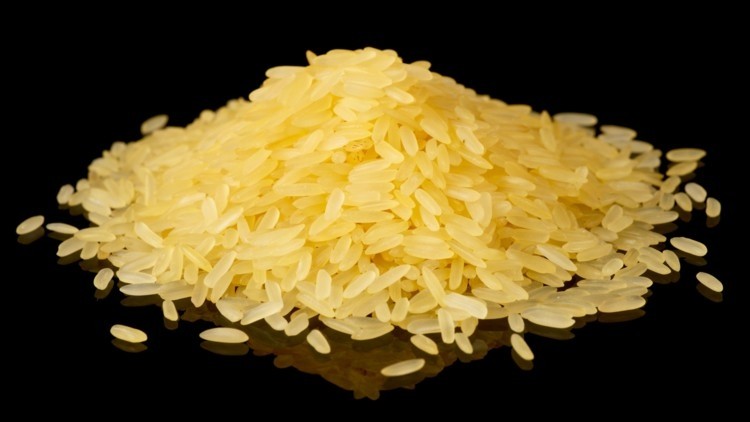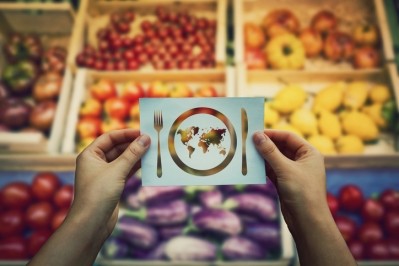Science says yes: Experts defend nutritional benefits of Golden Rice in wake of anti-GM protests

They have highlighted its scientific backing, as well as the fact that it is not meant as a ‘panacea’ for the global malnutrition situation.
Golden Rice is any rice variety that has been genetically modified to include two genes (from maize and soil bacteria) to complete the carotenoid pathway and express beta-carotene, a pigment that converts into Vitamin A in the body and is hoped to help with Vitamin A Deficiency (VAD) in countries where rice is a staple food.
It has been under attack from farmer-led groups and anti-GM groups for several years now, which cite issues ranging from undetermined food safety, environmental safety all the way to ‘rice imperialism’ by big food corporations, all of which culminated earlier this month in a weeklong protest organized by the Stop Golden Rice Network (SGRN).
The group declared every August 8 to be the ‘International Day of Action Against Golden Rice’, and took the protest virtual on Facebook, from profile picture changes, to displays of signs signifying opposition of Golden Rice, and urging followers to commemorate a 2013 event when a Golden Rice field was uprooted and destroyed.
“We believe that Golden Rice is an unnecessary and unwanted technology being peddled by corporations purely for their profit-making agenda. [It] will only strengthen the grip of corporations over rice and agriculture and will endanger agrobiodiversity and peoples’ health as well,” said SGRN.
Amongst the group’s chief criticisms were that the rice’s beta-carotene levels were not sufficient to address VAD, that no meaningful safety tests have been conducted, that it might contaminate other rice varieties, and that there are other, better sources of beta-carotene out there.
According to IRRI Program Lead for Healthier Rice Dr Russesll Reinke though, the point of Golden Rice seems to be being missed.
“Up till date, I’m still completely nonplussed about all the pushback against Golden Rice. The ethos here is that we just want to build the beta-carotene into the rice, so consumers can get more Vitamin A every time they eat it, that’s all,” he told FoodNavigator-Asia.
“This is especially important in countries where rice is a main staple such as the Philippines and Bangladesh, as the poorer the country and the people, the more often they want higher caloric food, and thus the more often they want rice, not any other foods, so we’re building directly on what’s already in the diet which is often more acceptable.
“Golden Rice is not meant to be a panacea to fix the VAD or any other malnutrition problem – it’s just meant to be a complementary approach, as we’ve found it can give 30% to 50% of a person’s estimated average requirement of Vitamin A. [It’s] not a miracle solution, but a supplement to help.”
As for the food safety issues, Dr Reinke added that numerous studies had already demonstrated the safety of Golden Rice as a food – just that these, ironically, are not the actual target countries.
“Golden Rice has unequivocally been found to be safe to be consumed as a food by a range of authorities who reviewed all our documentation and research on it, such as Australia, New Zealand and the United States – the food safety systems in these countries are strong and detailed with thorough safety assessments, and they have approved it. The only issue, of course, is that these are not the target countries we are looking at,” said Dr Reinke.
“For our main targets, we’re about halfway through the process in the Philippines and substantially into it in Bangladesh right now.”
He also added that the environmental safety concerns were not an issue as Golden Rice is ‘exactly the same as any other rice, other than to contain beta-carotene’.
“There’s no difference at all in terms of the way it grows or its reproductive fitness, and there is no more impact on environmental safety than other types of rice,” he said.
“[I know there are concerns about mixing], but we also definitely want to minimise this not so much for environmental safety issues, but because mixing Golden Rice with other rice would reduce the beta-carotene content – so we’d look into issuing additional requirements and guidelines when distributing the seeds to maintain their integrity.
“All in all, I know there is a general hesitancy about transgenic products, and I respect that hesitancy, but I also believe we’ve moved a long way past that stage – transgenic crops have been growing and being consumed all over the world for over 20 years with no incidence of harm.”
Next steps
IRRI is currently applying for commercial propagation approval in the Philippines to demonstrate the safety of Golden Rice in the environment, before taking further steps to ‘deployment’ – which essentially means putting the seeds in farmers’ hands to lead to production and consumption.
“The seeds will be deployed to farmers in the Philippines and Bangladesh via the national agricultural systems in the country – farmers can choose to buy these seeds, or not, from these distribution systems, so the seeds will effectively be freely available to them and they can then grow and save to regrow the seeds just like they would any rice varieties being produced by national organisations to resist pests or temperature,” said Dr Reinke.
“So this means that Golden Rice will essentially become part of the national distribution system, so I really do not see how people’s fear of ‘agricultural imperialism’ by any company due to the consumption of this rice variety will materialise.”
After this regulatory approval goes through, Dr Reinke estimates that another one or two seasons of rice planting will be needed for all the preparations, such as to increase the amount of Golden Rice seeds available. So the estimated timeframe of progress is that it will take roughly another year - after regulatory approval is obtained - before Golden Rice is formally deployed into the market.









